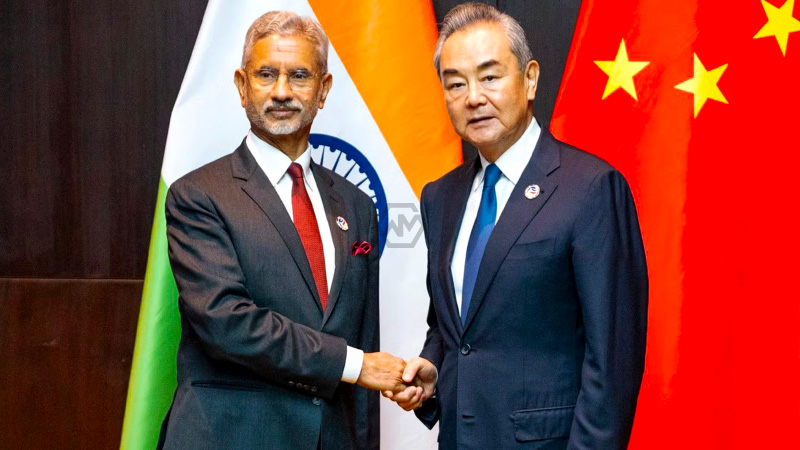- India and China have committed to urgently withdrawing troops from their disputed Himalayan border.
- The agreement followed a meeting between Indian Foreign Minister Subrahmanyam Jaishankar and Chinese Foreign Minister Wang Yi.
- The move aims to restore normalcy in bilateral relations and ease tensions that have persisted since the 2020 military clash.
India and China have made a significant commitment to de-escalate their long-standing border dispute by agreeing to the urgent withdrawal of troops. This development follows a meeting on the sidelines of the ASEAN summit in Laos between Indian Foreign Minister Subrahmanyam Jaishankar and Chinese Foreign Minister Wang Yi.
The decision is a crucial step toward addressing the ongoing tensions along the Line of Actual Control (LAC), which has been a flashpoint for clashes between the two nations.
New Progress in India-China Border Dispute as Troop Withdrawal Agreed
The agreement comes after a protracted standoff that began with a deadly clash in July 2020, resulting in casualties on both sides. Despite some troop withdrawals from specific areas such as Pangong Tso and Galwan Valley, a substantial military presence has remained. The recent talks emphasize the need for comprehensive disengagement to restore peace and improve bilateral relations, signaling a potential shift towards resolving this long-standing issue.
The ongoing standoff has involved large-scale military deployments on both sides, with each country maintaining a significant presence in the contested areas. While there have been some withdrawals from regions like Pangong Tso and Galwan Valley, a full disengagement has been elusive. The recent talks underline the necessity of a comprehensive approach to resolve the border issues and restore normalcy in diplomatic relations.
This agreement is expected to play a critical role in alleviating the persistent tensions between the two nations and could pave the way for further diplomatic progress. Both countries have acknowledged that peace on the border is essential for improving overall bilateral ties and fostering cooperation in other areas.
The commitment to withdraw troops reflects a mutual understanding of the importance of stabilizing the border and reducing the risk of future conflicts. As both sides work towards implementing this agreement, it could signal a new phase in the relationship between India and China, with potential benefits for regional stability.
The recent agreement between India and China to withdraw troops from their disputed border represents a promising development in their long-standing conflict. By prioritizing a comprehensive disengagement, both nations aim to restore peace and improve their bilateral relations.
“Jaishankar in his opening remarks said the border issues have ‘cast a shadow’ over India-China ties for the last four years despite considerable efforts by both sides to solve them.”



